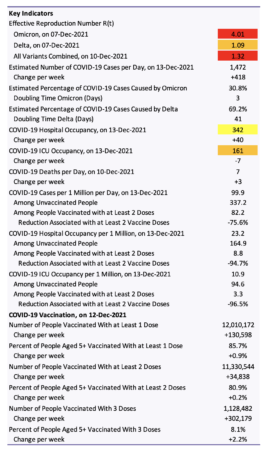Next week, the Toronto city council is considering a proposal to adopt a net zero target by 2040. I have written to my city councillor and the mayor supporting the idea as better than nothing, but also explaining why net zero promises risk prolonging rather than curtailing fossil fuel use:
Councillor Mike Colle and Mayor John Tory,
I am writing to you in support of the effort to establish a net zero CO2 target for Toronto by 2040, but also to warn you about the risks of the net zero concept and to advocate fossil fuel abolition as a preferable policy. Please do not be mistaken about my intent: a net zero target is better than inaction, and ought to be passed. Addressing climate change, however, will require much more.
There is a major risk that “net zero” is a delay and distraction tactic which aligns with the interests of fossil fuel producing states and corporations. It’s a way of distracting from the cause of climate change — fossil fuels — and to conjure a misleading sense that the problem can be solved without getting rid of them. By endorsing net zero targets, advocates of climate action risk playing the role of doctors advocating low-tar or filtered cigarettes: extending the life and profits of a noxious industry through the false suggestion that we can get the benefits while avoiding the consequences.
One of the clearest signals that net zero is being used to extend rather than constrain the history of the fossil fuel industry has been the enthusiasm with which such targets have been adopted by fossil fuel producers. For example, Saudi Arabia has made a net zero promise for 2060 while Saudi Energy Minister Prince Abdulaziz bin Salman has said: “We are still going to be the last man standing, and every molecule of hydrocarbon will come out.” This ought to be a warning sign that net zero is a Trojan horse designed to delay policies and regulations to abolish fossil fuels before we catastrophically destabilize the climate.
An examination of scale also calls into question the plausibility of achieving net zero by any means other than ending fossil fuel use. Global oil production was about 88.4 million barrels per day in 2020. That’s about 32.3 billion barrels, each with about 136 kg of oil. That adds up to about 4.3 billion metric tonnes (gigatonnes) of oil taken from the ground every year. Even with COVID-related reductions, global CO2 output in 2020 was about 34.81 gigatonnes. That means to bury all the CO2 from our fossil fuel use, we would need to replicate the global oil industry more than eight times over, except with equipment to extract, compress, and bury CO2. All of this would cost energy and money to run and would produce no profit. It has also taken a century to build that level of oil infrastructure. The idea that we can solve our CO2 problem by burying it simply doesn’t make sense physically, even before you start comparing the cost of avoiding the emissions in the first place to the cost of separating and burying them.
In addition, there are enormous non-climate co-benefits from fossil fuel abolition. A 2021 journal article estimated that just the fine particulate pollution from global fossil fuel combustion causes 10.2 million premature deaths annually. This is another demonstration of how the apparent profitability of the fossil fuel industry arises only because we do not deduct the amount of harm arising from their products. Fossil fuel abolition has the promise of saving ten million lives per year, and more when pollution beyond just particulate matter is factored in.
The other risk of a net zero as opposed to a fossil fuel abolition approach is that it will fail to incentivize the right investments. If families and businesses in Toronto knew that fossil fuel use was going to be coming to an end before mid-century, it would no longer make sense to construct new buildings heated with gas, or countless other pieces of infrastructure that reinforce and prolong our fossil fuel dependence. If we let that investment continue and only get serious about fossil fuel abolition later, it will raise the total cost because we will have wasted money on inappropriate infrastructure which we will need to scrap and because we have delayed the deployment of appropriate infrastructure compatible with a stable climate.
To repeat my main point: adopting a net zero target by 2040 would likely have some benefits and is better than inaction. At the same time, the city council must be mindful of the risk that net zero targets are a concealed fossil fuel promotion strategy, not a strategy to stabilize the climate. It is always tempting to be told that you can get the benefits of a damaging activity while avoiding the harms, but with net zero there are strong reasons to fear that it is a marketing strategy designed to keep letting fossil fuel producers profit while others absorb the costs.
Thank you for your attention,
Milan
We’re not going to bury our way out of the fossil fuel catastrophe. What needs burying is the fossil fuel industry itself.








